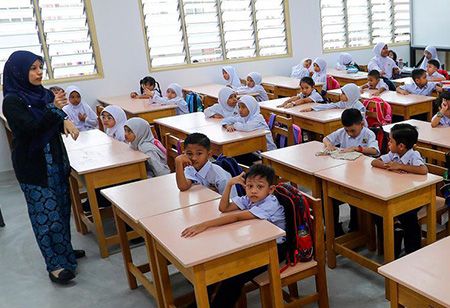The government's initiative to introduce Asian languages such as Thai, Khmer, and Vietnamese in schools has sparked criticism from education stakeholders, who warn that it may divert attention from more critical academic objectives.
Datin Noor Azimah Abdul Rahim, founder of the Parent Action Group for Education Malaysia (PAGE), questioned the relevance of this initiative, expressing concern that Malaysia might be “spreading itself too thin” without first strengthening foundational subjects like English, Bahasa Malaysia (BM), Mandarin, Science, and Mathematics.
“We shouldn’t take on more than we can handle. While Asean is a popular topic, the education minister must remember that English has always been the official language of Asean,” she stated. Azimah suggested that instead of Malaysia teaching regional languages, countries like Thailand, Vietnam, and Cambodia should focus on enhancing their own English language standards. “Vietnam is already ahead of us in English proficiency, with Thailand not far behind. Cambodia has its own educational challenges to address,” she added.
Azimah noted that the government’s priorities appear misaligned with the desires of most parents. “Parents are primarily focused on improving literacy, numeracy, and proficiency in English, BM, and Mandarin, especially in Science and Mathematics.” She criticized the excessive emphasis on BM and religious subjects, which she believes has marginalized English and Mandarin.
“The ministry has let parents down. It should be investing in effective programmes like the Dual Language Programme (DLP), which allows students to learn Science and Maths in English.” She proposed reallocating the budget for Asean languages to enhance BM proficiency among students not included in the DLP. “Once their BM improves, they can be reassessed, which will also benefit their English skills.”
Azimah dismissed the feasibility of implementing Asean languages on a large scale, arguing that schools are already stretched thin. “Let’s not even consider that. We should concentrate on English and Mandarin,” she remarked, describing the policy as a political gimmick that adds unnecessary pressure on students. “It’s merely symbolic and does not involve our children, who already have enough challenges. We need to focus on existing priorities deepening and elevating them or risk becoming a ‘Jack of all trades, master of none.’”
Former university lecturer Dr. Sharifah Munirah Alatas also criticized the policy, stating that it lacks coherence and risks becoming another fleeting initiative that overlooks deeper issues within the education system. “My main question is: What’s the rationale? Are our children even truly bilingual yet?” she asked in a Facebook post. Munirah emphasized the importance of establishing a solid foundation in BM and English before introducing regional languages. “Why not focus on mastering English first? We should channel all resources into developing a genuinely bilingual generation.”
She raised concerns about teacher quality and preparedness, questioning whether adequate planning has been conducted. “When politicians propose new languages, shouldn’t we ensure we have competent teachers?” she asked, advocating for better integration with teacher training.
Munirah criticized the lack of evidence-based policymaking, urging the government to utilize existing data and consult with universities, think tanks, and the public. “But is there political will?” she questioned. Referring to the now-suspended PPSMI (Teaching of Science and Maths in English) policy, she noted that students have long endured inconsistent reforms. “Instead of flashy policies like Asean language electives, we need solid research on how declining school standards affect university outcomes. While ideas like Asean languages may seem appealing, do they truly contribute to a more competitive, united, and forward-thinking Malaysia?”
In response, Education Minister Fadhlina Sidek clarified that the introduction of Asian languages will not detract from existing subjects, as they will only be offered as electives. She urged the public not to politicize the initiative, emphasizing that foreign languages have long been part of Malaysia’s elective curriculum alongside core languages such as BM, Mandarin, and Tamil.

